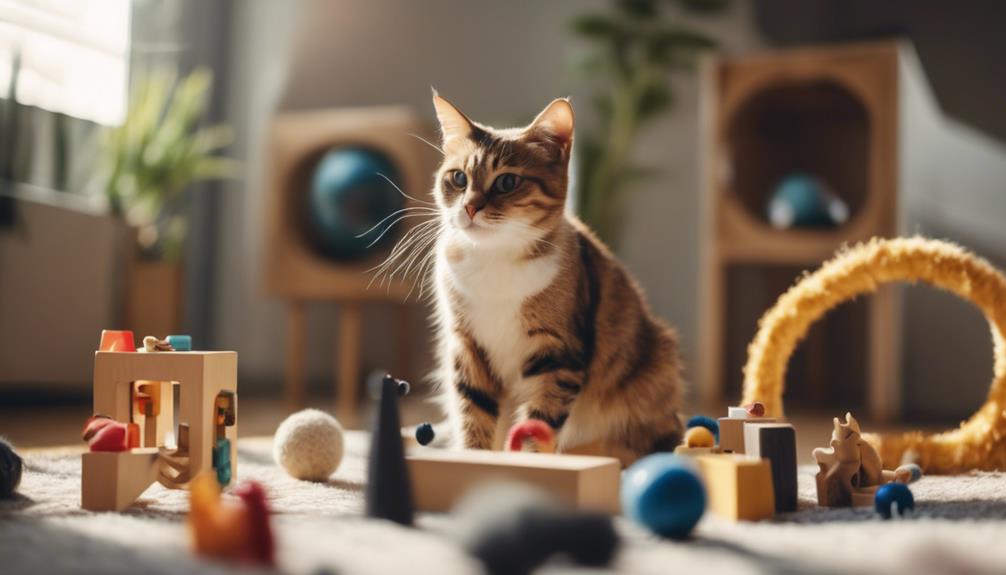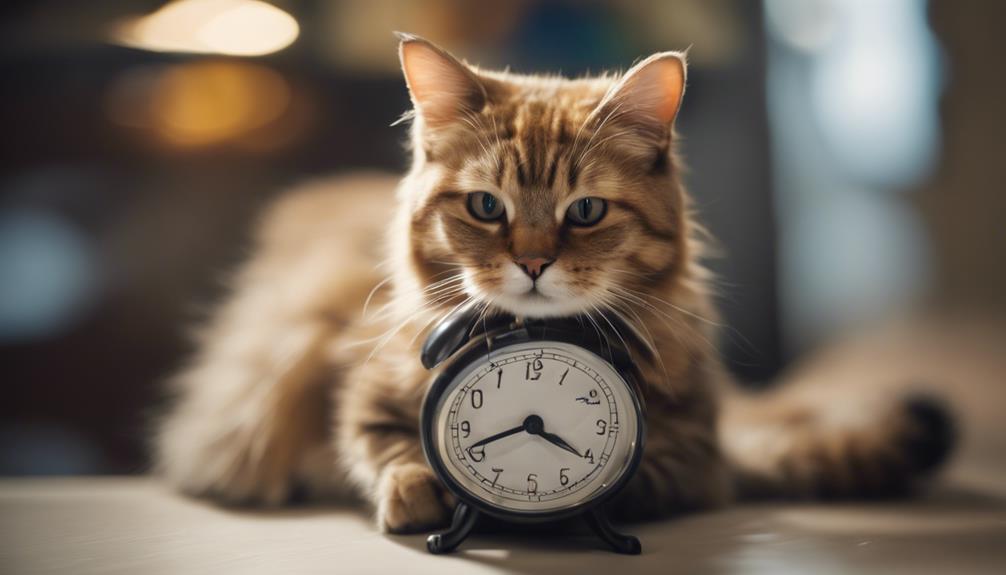In the realm of feline behavior, excessive meowing can be a challenging issue that many cat owners face. The incessant vocalization of cats can signify a multitude of reasons, from basic needs to more complex emotional or medical concerns.
Understanding the root cause of your cat's meowing may provide valuable insights into how to address this behavior effectively. By exploring the various factors that contribute to excessive meowing and implementing targeted strategies, cat owners can create a more peaceful and harmonious environment for both themselves and their beloved pets.
Key Takeaways
- Address underlying reasons like seeking attention or expressing anxiety.
- Enrich the cat's environment with toys, playtime, and comfort.
- Consider using calming pheromones to reduce stress and anxiety.
- Establish a routine for meals, playtime, and overall well-being.
Common Reasons for Excessive Meowing
Excessive meowing in cats can often be attributed to various reasons such as seeking attention, expressing anxiety, or indicating a need for food or treats. Cats may also meow excessively due to fear, stress, pain, health conditions, being in heat, or during pregnancy.
Some cats simply enjoy chatting and use meowing as a way to communicate with their owners. Understanding the underlying cause of the excessive meowing is crucial in addressing the issue effectively. By identifying the root cause, cat owners can implement appropriate strategies to manage and reduce the meowing behavior, ensuring the well-being and happiness of their feline companions.
Strategies for Managing Meowing Behavior
Focusing on understanding the triggers behind your cat's vocalizations can lead to effective strategies for managing their meowing behavior. If your cat's meowing is excessive, consider taking them to the vet to rule out any underlying health issues. Implementing tips like providing interactive toys, creating a routine for playtime and meals, and ensuring a comfortable environment can help reduce meowing.
Seeking a referral to a vet behaviorist may also offer valuable insights and guidance. Additionally, spaying or neutering your cat can help eliminate mating-related meowing. By addressing the root causes of your cat's meowing and incorporating these strategies, you can work towards creating a quieter and more harmonious living environment for both you and your feline companion.
Enriching Your Cat's Environment

Creating a stimulating environment for your cat is essential for their overall well-being and happiness. Daily playtime is crucial for mental and physical stimulation.
Interactive toys can keep your feline friend entertained and engaged, preventing boredom and excessive meowing. Providing cat-appropriate furniture, such as scratching posts and cat trees, gives them space to play, climb, and scratch, meeting their natural instincts.
Cat feeder puzzles are also great for mental stimulation, as they encourage problem-solving and slow down fast eaters. By enriching your cat's environment with these elements, you can help fulfill their needs, reduce stress, and promote a healthy and happy lifestyle for your beloved pet.
Benefits of Using Calming Pheromones
To further enhance your cat's well-being and address potential stressors, consider the benefits of incorporating calming pheromones into their environment.
Calming pheromones can assist new cats in adjusting to their surroundings, reduce stress and excitement during challenging situations such as vet visits or travel, and provide exploration and hiding spots for cats feeling overwhelmed.
These synthetic pheromones mimic the natural facial pheromones that cats release when they rub their face against objects in their territory, creating a sense of familiarity and comfort.
Importance of Establishing a Routine

Establishing a consistent routine is essential for maintaining the well-being and stability of your feline companion. Cats thrive on predictability, and having a set schedule can help reduce their anxiety and provide a sense of security.
Here are some key benefits of establishing a routine for your cat:
- Setting playtime and meal schedules: Regular play sessions and feeding times can help your cat feel secure and content.
- Starting routines early: Introducing a routine from a young age can make it easier for your cat to adapt and adhere to it.
- Creating a schedule for the cat: Having a structured daily plan can minimize stress and uncertainty for your feline friend.
- Promoting overall well-being: A consistent routine can lead to a happier and healthier cat, reducing the likelihood of excessive meowing.
Tips for Spaying or Neutering Your Cat
Setting a structured routine for your cat can also involve considering important tips for spaying or neutering your feline companion. Spaying or neutering your cat is a crucial step in managing their behavior, health, and overall well-being. This procedure helps eliminate the mating drive, which can lead to excessive meowing, roaming, and other undesirable behaviors.
Neutering male cats can reduce aggression, spraying, and the urge to escape. Spaying female cats prevents heat cycles, pregnancy, and potential health issues like uterine infections and certain cancers. It is recommended to spay or neuter your cat at a young age to maximize the benefits. Consult your veterinarian for guidance on the best timing and procedure for your cat.
Seeking Professional Help for Meowing Issues

Professional intervention from a veterinarian or certified animal behaviorist is recommended when dealing with persistent meowing issues in cats. Seeking professional help can provide a deeper understanding of your cat's behavior and help address underlying causes effectively. Here are four key reasons why professional help may be necessary:
- Identifying Medical Concerns: Professionals can rule out any underlying health issues causing excessive meowing.
- Behavioral Assessment: They can conduct a thorough behavioral assessment to determine the root cause of the meowing.
- Tailored Behavior Modification Plans: Experts can create personalized behavior modification plans to address the meowing problem.
- Medication Management: In some cases, professionals may recommend medications to manage excessive meowing associated with anxiety or other conditions.
Conclusion
In conclusion, understanding the reasons behind excessive meowing in cats is crucial for addressing this behavior. By implementing strategies such as environmental enrichment, using calming pheromones, establishing routines, and seeking professional help, cat owners can effectively manage their feline companions' meowing.
Interestingly, a study conducted by the American Association of Feline Practitioners found that 80% of cats exhibit excessive meowing behavior due to underlying medical issues or stress factors, highlighting the importance of proactive intervention.




